Maori Tattoos
Explore the Rich Heritage of Maori Tattoo Designs
Maori tattoos, also known as moko or tā moko, have a deep cultural significance in New Zealand. They are not just a form of body art but also carry symbolic meanings related to family, prosperity, strength, and career path. Traditional Maori design elements, such as Manawa Lines and Korus, are incorporated into these tattoos to represent life journey and new beginnings.
Additionally, different infill patterns, such as Pakati and Hikuaua, have their own meanings, representing courage, prosperity, and health. The process of designing and tattooing Maori tattoos involve a consultation with an artist, sketching of the design, and the use of freehand technique on the skin.
Key Takeaways:
- Maori tattoos, also known as moko or tā moko tattoos, are deeply rooted in Maori culture and carry symbolic meanings.
- Traditional Maori design elements, such as Manawa Lines and Korus, are incorporated into these tattoos.
- Maori tattoos represent important aspects of family, prosperity, strength, and career path.
- The process of designing and tattooing a Maori tattoo involves consultation with an artist and the use of freehand technique.
- Maori tattoos hold a rich heritage and cultural significance in New Zealand and beyond.
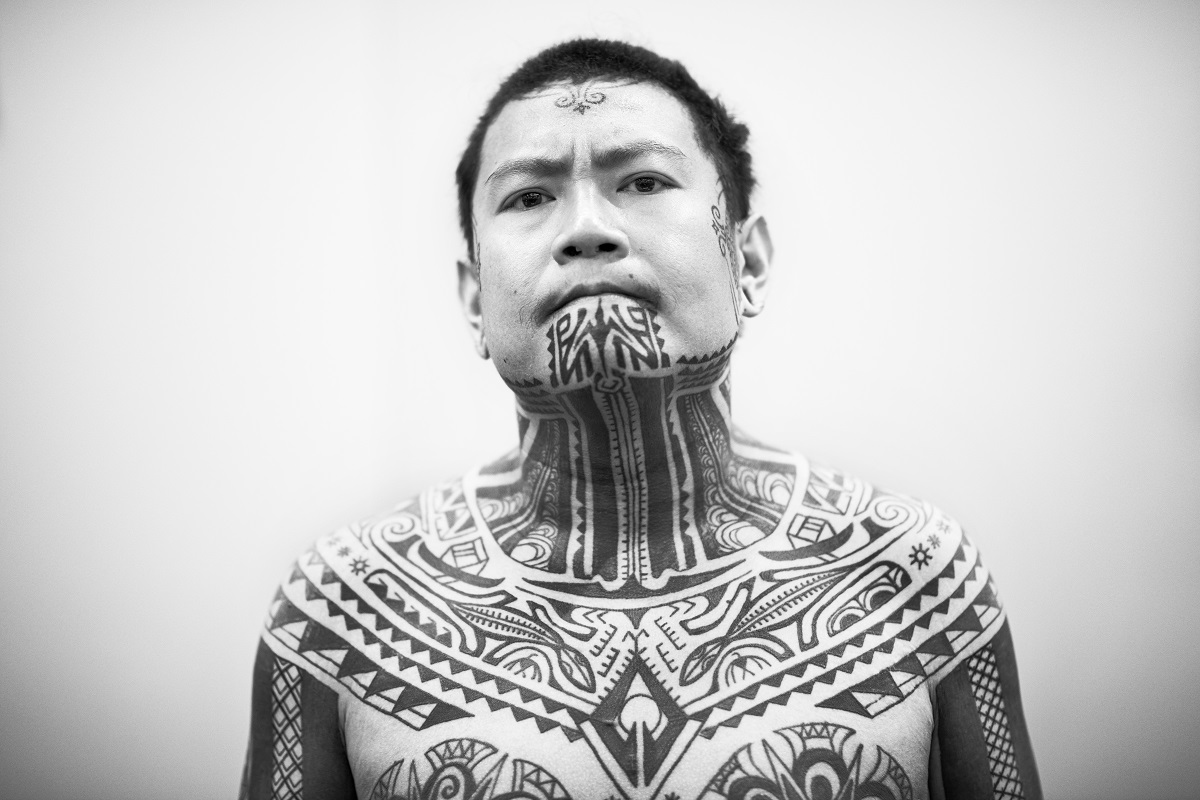
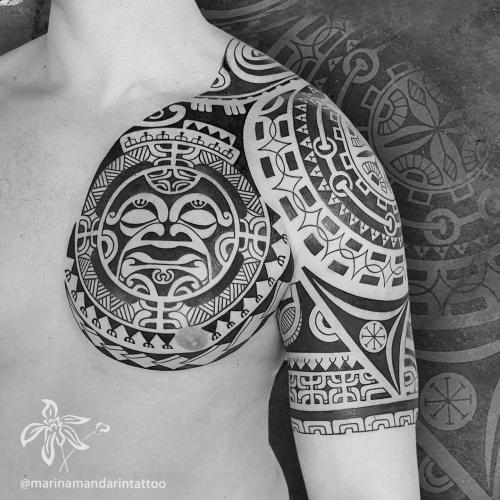
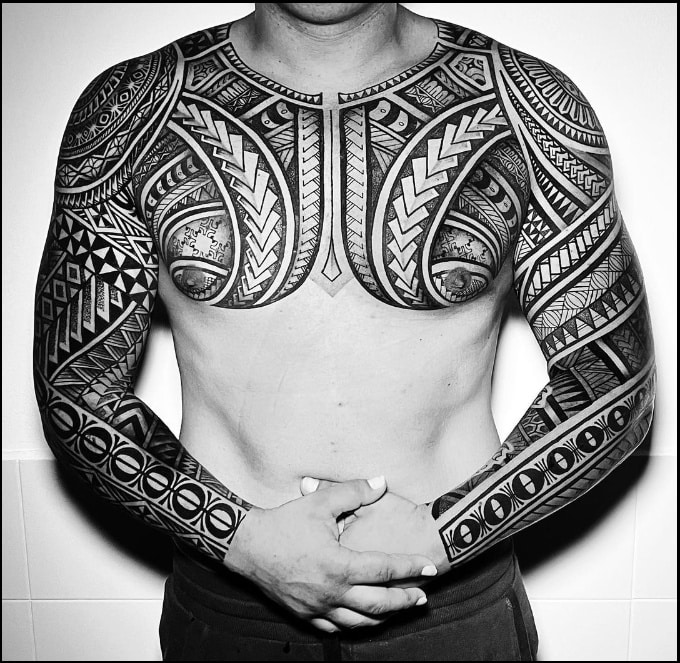
The Origins and Cultural Significance of Maori Tattoos
Maori tattooing, known as “Ta moko,” is a deeply spiritual and ritualistic practice among the indigenous people of New Zealand.The Maori people consider the head to be the most sacred part of the body, which led to the development of facial tattoos. These facial tattoos, known as moko, were symbols of rank, social status, power, and prestige.
- Te: The term “Ta moko” refers to Maori tattooing, which holds deep cultural and spiritual significance within the Maori community.
- Fern: The designs of Maori tattoos often incorporate swirling and coiling patterns, reflecting the cultural heritage of the Maori people.
- Groove: Maori tattooing involves cutting deeply into the skin, producing grooved scars that form intricate and unique designs.
- Mallet: Traditional Maori tattooing involves the use of a mallet and chisels made from the bones of sea birds to create the intricate designs.
The process of creating traditional Maori tattoos involved the use of chisels made from shark teeth or sharp stones. The designs carved into the skin represented the wearer’s lineage, tribal affiliations, and achievements in war and life. Maori tattoos were seen as a rite of passage, highly revered and ritualized. While traditional Maori tattoos were primarily for men, women also began to wear Maori chin tattoos called moko kauae.
In the creation of Maori tattoos, the use of traditional tools and pigments, along with the deeply ritualized and tapu (sacred) process, reflects the cultural and historical importance of Ta mokos within the Maori community. The designs of Maori tattoos, often depicting an individual’s personal lineage, are a symbol of power, honor, and social status within traditional Polynesian society.
The intricate designs and patterns of these tattoos reflect important aspects of Maori culture and mythology. Today, Maori tattoos continue to be valued as a celebration of heritage and a form of cultural expression.
The Cultural Significance of Maori Tattoos
“Maori tattoos are more than just body art; they are a symbol of our identity, our courage, and our connection to our ancestors. Each tattoo tells a story and carries the weight of our cultural heritage. It is a way for us to honor our past and embrace our future.” – A Maori tattoo artist.
| Maori Tattoo Symbol | Meaning |
|---|---|
| Manawa Lines | Life journey |
| Korus | New beginnings |
| Pakati | Courage |
| Hikuaua | Prosperity and health |
The cultural significance of Maori tattoos goes beyond their visual appeal. Each symbol and pattern used in these tattoos carries its own meaning, reflecting the wearer’s identity, lineage, and connection to Maori culture. It is through these tattoos that the Maori people preserve their traditions and pass them on to future generations.
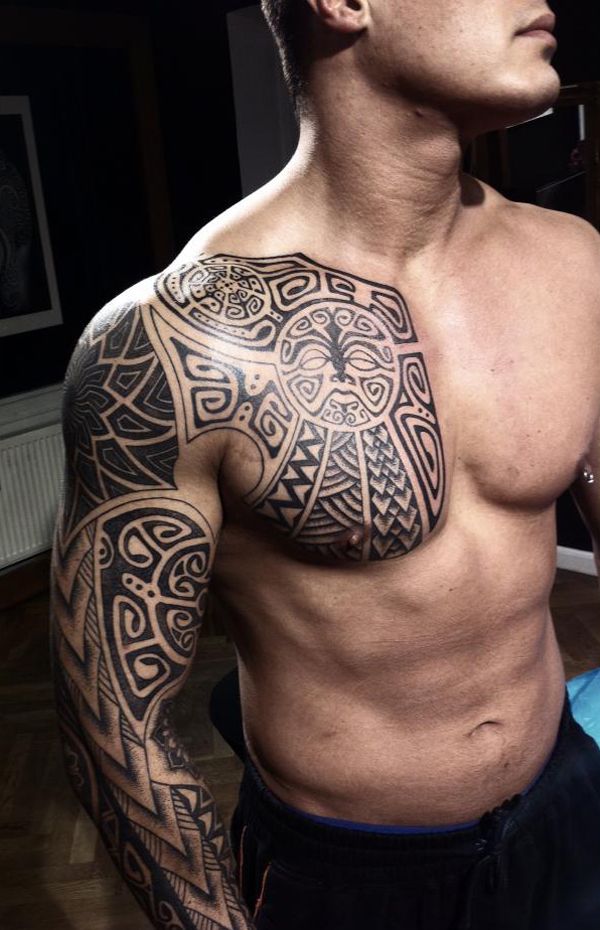
The difference between Polynesian and Māori Tattoos
Although many people believe Māori Tattoos and Polynesian tattoos are the same, there is a significant difference. While Maori tattoos are a form of Polynesian tattooing, they have their own distinct style characterized by swirling, coiling patterns.
On the other hand, Polynesian tattoos encompass a variety of styles, including Maori, Samoan, Marquesan, Hawaiian, and Tahitian.
Samoan tattoos, for example, lean more towards clear lines and geometric shape detailing, and tattoos are more focused on the legs and buttocks. Meanwhile, Marquesan tattoo designs often cover the whole body and are the most elaborate in Polynesia.

The Evolution of Maori Tattoo Art
The art of Maori tattoo, or Maori moko, has evolved over time, adapting to changing cultural and societal dynamics. With the arrival of Europeans in New Zealand, the practice of tattooing faced challenges from missionaries who viewed it as taboo. However, during the Maori Wars in the 19th century, the Maori facial moko became a powerful act of defiance against British colonization, reclaiming Maori cultural identity. Over the years, the popularity of facial moko for men has declined, while the female Maori tattoo, or the chin tattoo known as moko kauae, have gained prominence among Maori women as a way to mark their journey into adulthood and enhance their beauty.
Today, this form of tattooing has not only survived but thrived. It has gained global recognition and popularity, with tattoo artists worldwide specializing in this unique type of tattoo. The intricate designs and symbols of Maori tattoos have captivated people from diverse backgrounds who appreciate the depth of meaning and cultural significance behind each pattern. The art of Maori tattooing continues to evolve, blending traditional techniques with modern innovations as geometric designs to create stunning and meaningful tattoo designs.
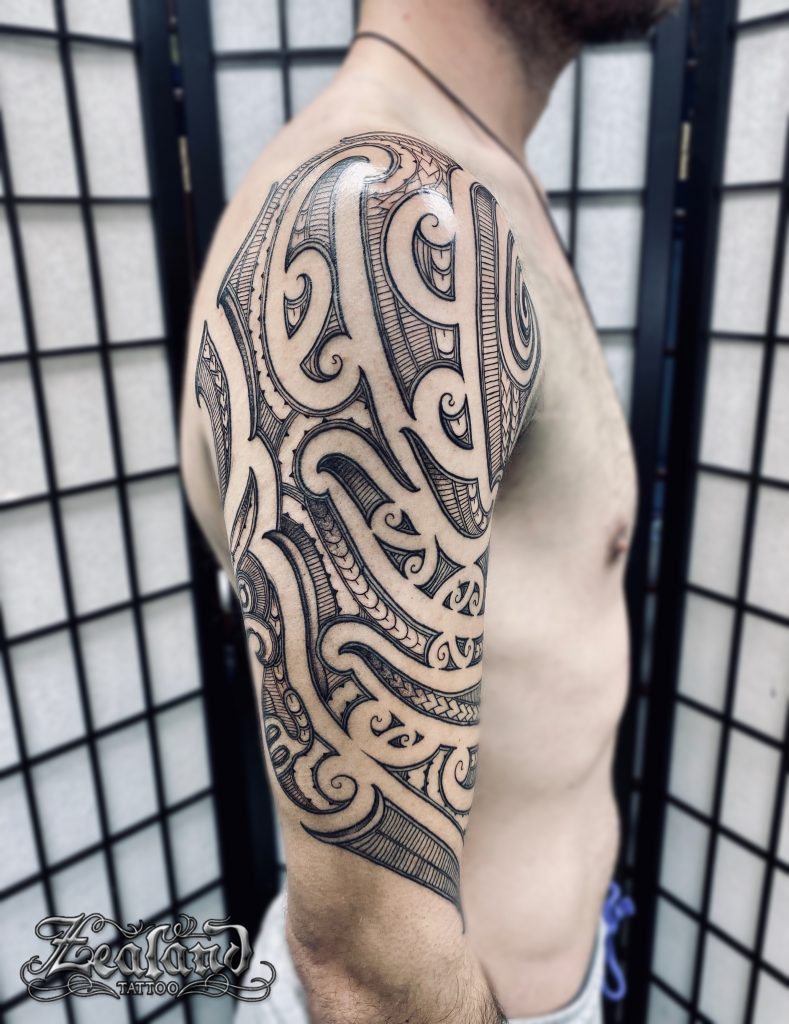
The Enduring Symbolism of Maori Tattoo Symbols
Maori tattoo symbols hold profound meanings that connect the wearer to their heritage and culture. Each symbol used in Maori tattoos carries its own significance, telling a unique story and reflecting the individual’s identity and life journey. Some of the most common Maori tattoo symbols include:
- Koru: Represents new life, growth, and potential.
- Tiki: Symbolizes fertility, protection, and good luck.
- Manaia: Represents spiritual guardianship, balance, and protection.
- Hei Matau: Signifies strength, determination, and safe travels over water.
These symbols are intricately woven into the designs of Maori tattoos, creating a rich tapestry of cultural meaning and personal significance.
Table: Traditional Maori Tattoo Symbols and Meanings
| Tattoo Symbol | Meaning |
|---|---|
| Koru | New life, growth, potential |
| Tiki | Fertility, protection, good luck |
| Manaia | Spiritual guardianship, balance, protection |
| Hei Matau | Strength, determination, safe travels over water |
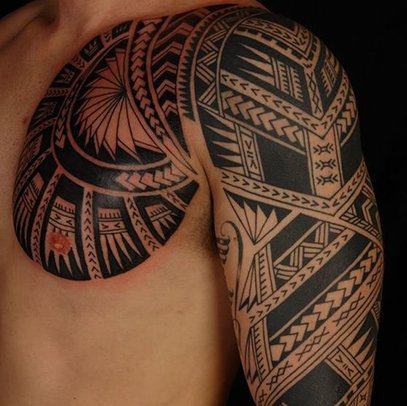
| Impact of Maori Tattoos | Description |
|---|---|
| Cultural Identity | Facial tattoos are a powerful symbol of cultural identity and connection to ancestral land. |
| Symbol of Pride | Maori tattoos represent pride in Maori heritage and serve as a physical manifestation of cultural identity. |
| Preservation of Culture | Maori tattoos help preserve and celebrate Maori culture, passing down traditions and stories through generations. |
| Defiance Against Colonization | During the Maori Wars, full-face moko became a means of defiance against British colonization. |

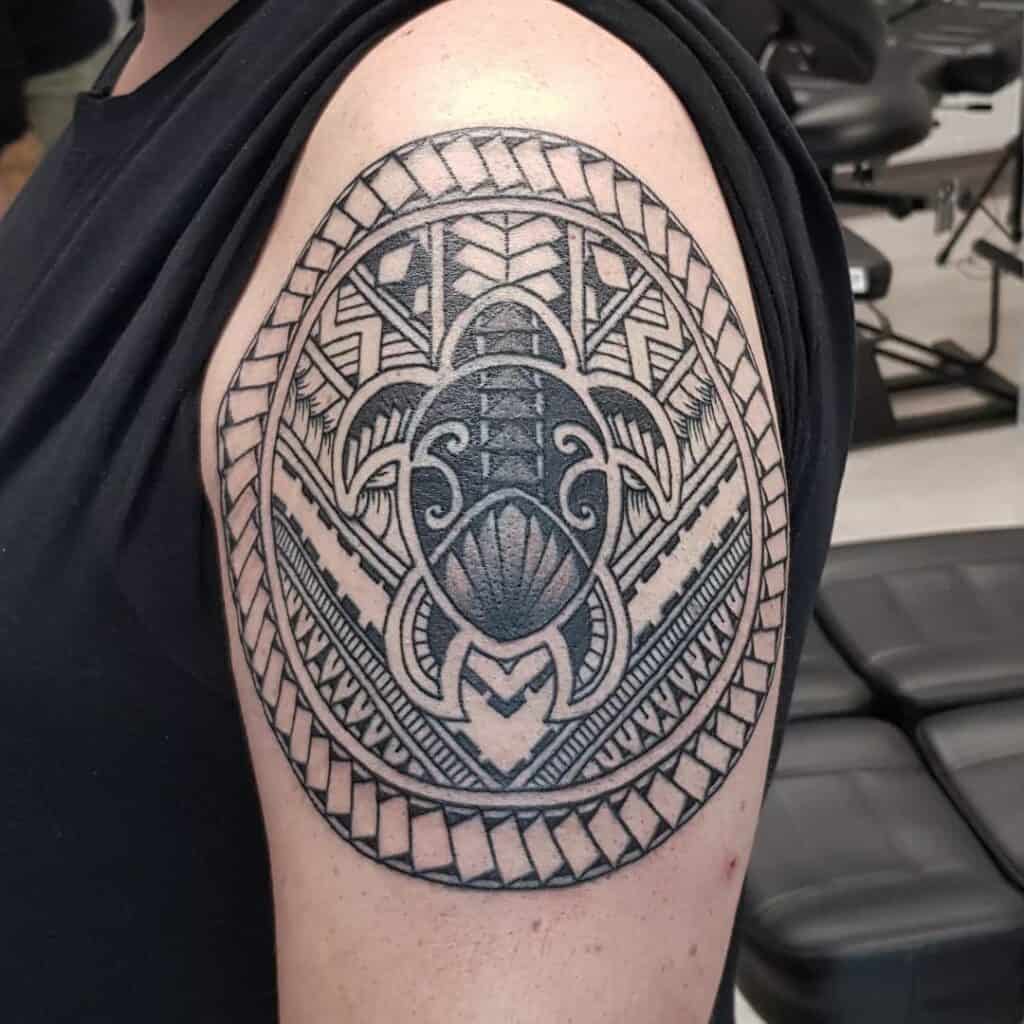
The Intricate Designs and Meanings Behind Maori Tattoos
Maori tattoos are renowned for their intricate and detailed designs, each symbolizing a deeper meaning. These tattoos reflect a person’s social status, ancestral lineage, and important aspects of Maori tribes culture and mythology. Understanding the meanings behind these designs is crucial in capturing the essence of Maori traditional tattooing.
The patterns and symbols incorporated into Maori tattoos hold significant cultural importance. For example, the koru, a spiral-shaped symbol, represents new beginnings, growth, and harmony. It reflects the journey of life and signifies perpetual movement. Another commonly used pattern is the manaia, a creature that combines various animal forms and represents a guardian spirit. It symbolizes protection and spiritual guidance.
To further explore the meanings behind Maori tattoo patterns, refer to the table below:
| Tattoo Pattern | Meaning |
|---|---|
| Pakati | Symbolizes courage, strength, and warrior spirit |
| Manaia | Represents a guardian spirit and offers protection |
| Hei-matau | Symbolic of prosperity, abundance, and connection to the sea |
| Wharenui | Signifies a meeting house and represents community and social identity |
The art of ta moko requires deep knowledge and understanding of these symbols to create a personalized and meaningful tattoo. Each design is unique and tells a personal story, connecting the wearer to their heritage and cultural identity. Whether it’s a small symbol or a full facial tattoo, Maori tattoos are one unique, powerful and visually captivating form of self-expression.
The Process and Technique of Creating Maori Tattoos
Creating a Maori tattoo, or ta moko, is a unique process that involves a consultation with a tattoo artist to bring the wearer’s vision to life. The artist will sketch a rough design based on the meanings and symbolism the wearer wants to incorporate into their tattoo. This collaborative effort ensures that the final design represents the wearer’s personal story and connection to their heritage.
One of the distinctive aspects of the method of tattooing is based on the freehand technique. The artist will meticulously freehand the design directly onto the skin using tattoo marker pens. This allows for precision and ensures that all the traditional symbols and representations are incorporated into the tattoo. The artist’s skill and expertise are vital in maintaining the integrity and cultural significance of the design.
While traditional Maori tattooing tools, such as chisels made from shark teeth or sharp stones, were historically used, modern tattooing equipment is now more commonly used. This evolution in tools and techniques has allowed for greater flexibility and artistic expression in the practice of ta moko.
“The process of creating a Maori tattoo is a deeply personal and cultural experience,” says renowned tattoo artist Tane Matua. “Every stroke and line carries meaning and tells a story. It is an honor to be entrusted with the responsibility of bringing someone’s heritage to life through tattoos.”
The Cultural Significance of Maori Tattoos
Maori tattoos hold profound cultural and spiritual significance for the for the New Zealand’s Maori people. The knowledge of ta moko, the art of Maori tattooing, is passed down through generations, with skilled moko artists known as tohunga ta moko. The lines of a moko are meticulously crafted to align with the contours of the face, symbolizing the wearer’s personal journey and connection to their ancestry.
For Maori women, chin tattoos known as moko kauae carry special significance. These tattoos represent their identity, connection to their whakapapa (ancestry), and passage into adulthood. The art of ta moko has been traditionally passed down through generations, with women also taking up the practice in recent years, ensuring the preservation of this cultural art form.
| Tattoo Technique | Tools Used |
|---|---|
| Traditional Maori Tattooing (Ta Moko) | Chisels made from shark teeth or sharp stones |
| Modern Tattooing | Tattoo machines, tattoo marker pens |
The process of creating Maori tattoos encompasses not only the physical act of tattooing but also the cultural knowledge and spirituality behind each design. It is a practice that continues to evolve and adapt, connecting people to their heritage and preserving the rich cultural traditions of the Maori people.
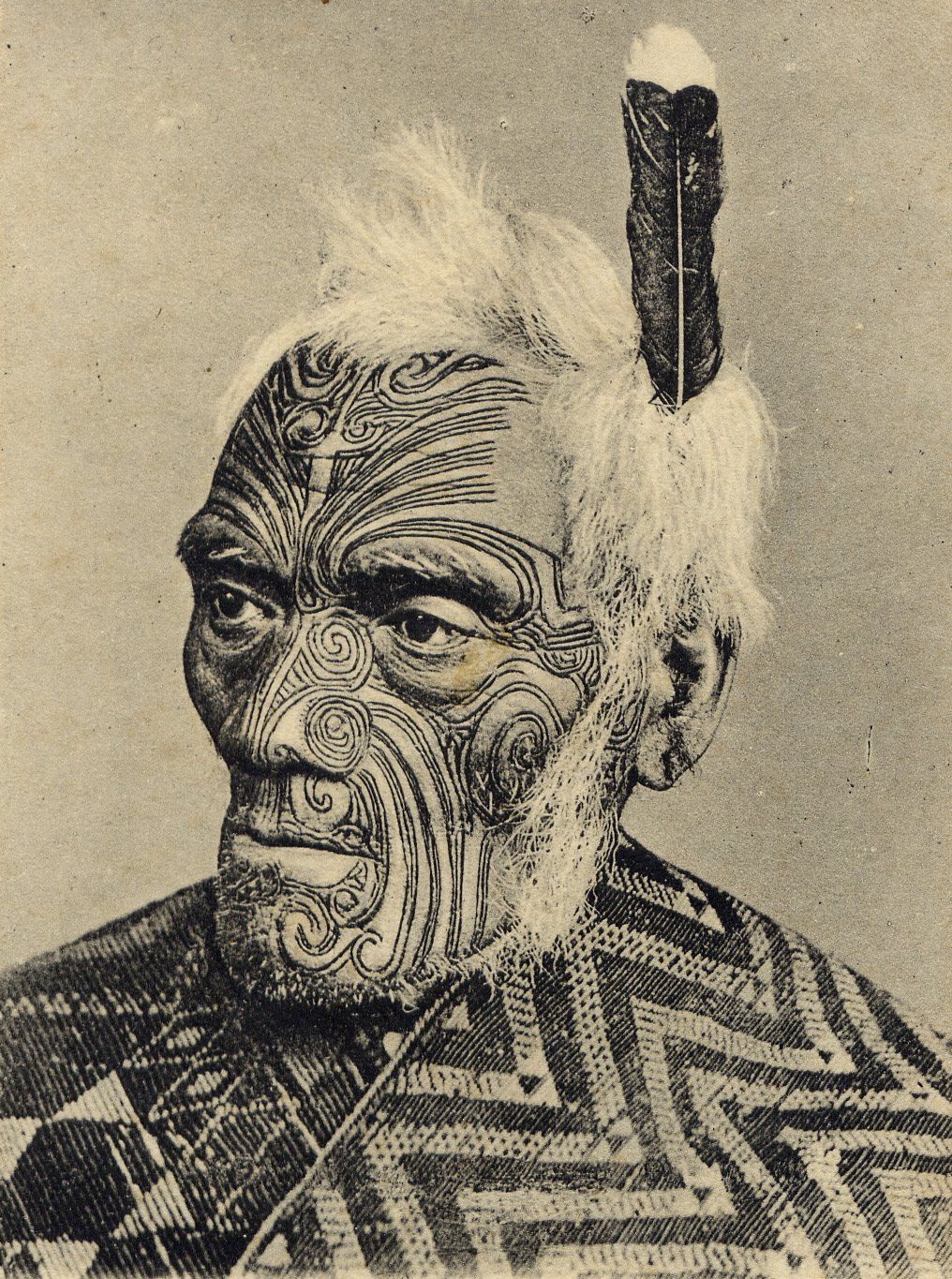
| Tattoo | Meaning |
|---|---|
| Moko | Symbol of cultural identity, social status, and connection to ancestral land |
| Moko Kauae (Chin tattoo) | Represents a woman’s identity, connection to ancestry, and passage into adulthood |
| Lines and Patterns | Carefully crafted to align with the contours of the face, creating a personalized tattoo |
| Knowledge of Ta Moko | Passed down through generations, held by skilled moko artists |
Maori tattoos continue to be a source of cultural pride and are deeply respected by the Maori community. These tattoos serve as a powerful reminder of the enduring heritage and traditions of the Maori people, as well as their connection to the land and their ancestors.
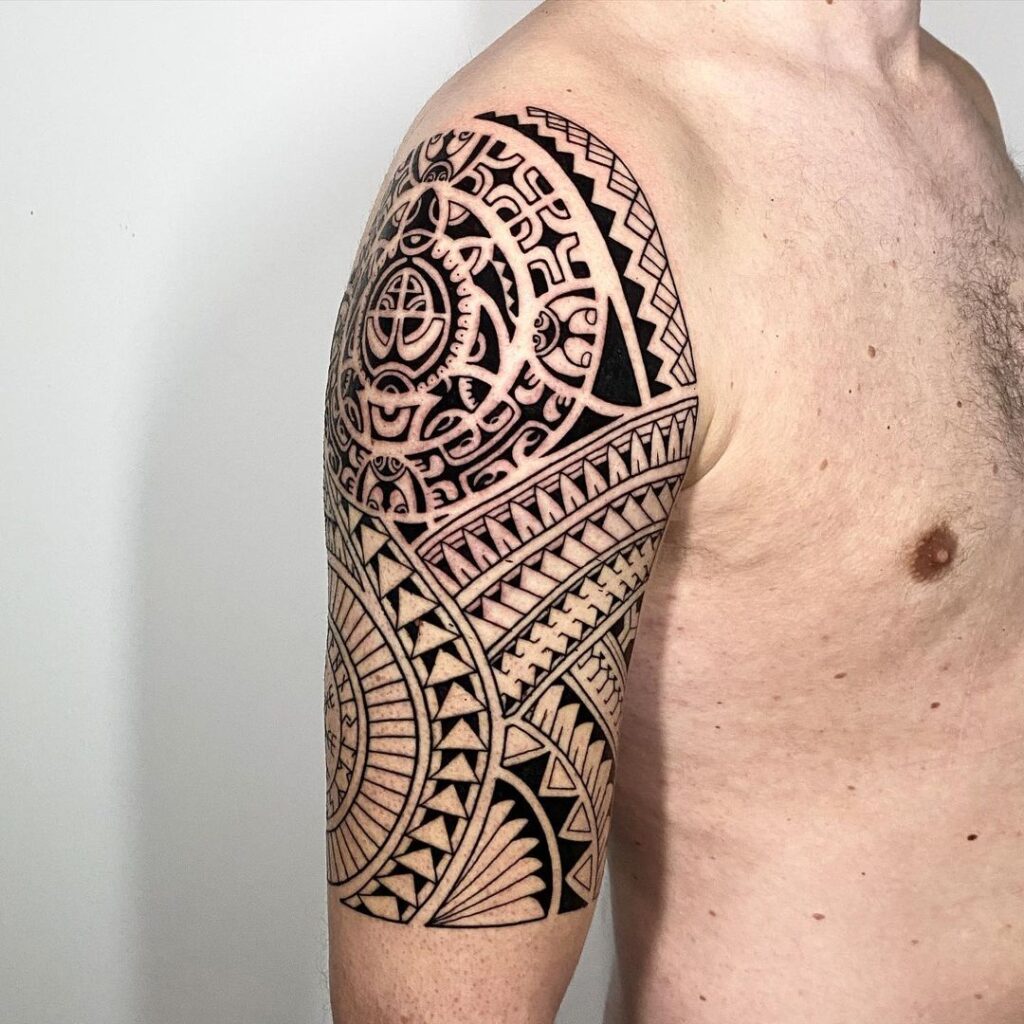
Tā Moko Today
In contemporary New Zealand, traditional Māori tattoos continue to be a significant part of cultural identity and expression. While full facial tattoos have become less common, some individuals still choose to have these tattoos covering the side of their face. These tattoos serve as a powerful symbol of their connection to traditional Maori art and culture.
Maori symbols are often incorporated into modern tattoo designs, blending traditional and contemporary elements. This fusion of old and new allows individuals to honor the rich heritage of Maori tattoos while also expressing their own personal style and identity.
“Maori tattoos are more than just body art. They represent a deep connection to our ancestors and serve as a visual reminder of our cultural pride and resilience.” – Maori Tattoo Artist
Maori tattoo art is not limited to the people of New Zealand of Maori descent. People from diverse backgrounds are drawn to the beautiful designs and cultural significance of these tattoos, embracing them as a way to appreciate and celebrate Maori culture. Each tattoo tells a unique story, representing the individual’s journey and connection to their heritage.
The Two Maori Gods in Tattoo Symbolism
In Maori tattoo art, two gods play a significant role in the symbolism. The first is Tane Mahuta, the god of forests and birds. Represented by intricate designs of leaves and birds, tattoos inspired by Tane Mahuta symbolize connection to nature, growth, and spiritual strength.
The second god is Tiki, the first man according to Maori mythology. Tiki tattoos often feature the face of a man, representing the human form and the origins of humanity. These tattoos are seen as a symbol of new beginnings, self-discovery, and personal transformation.
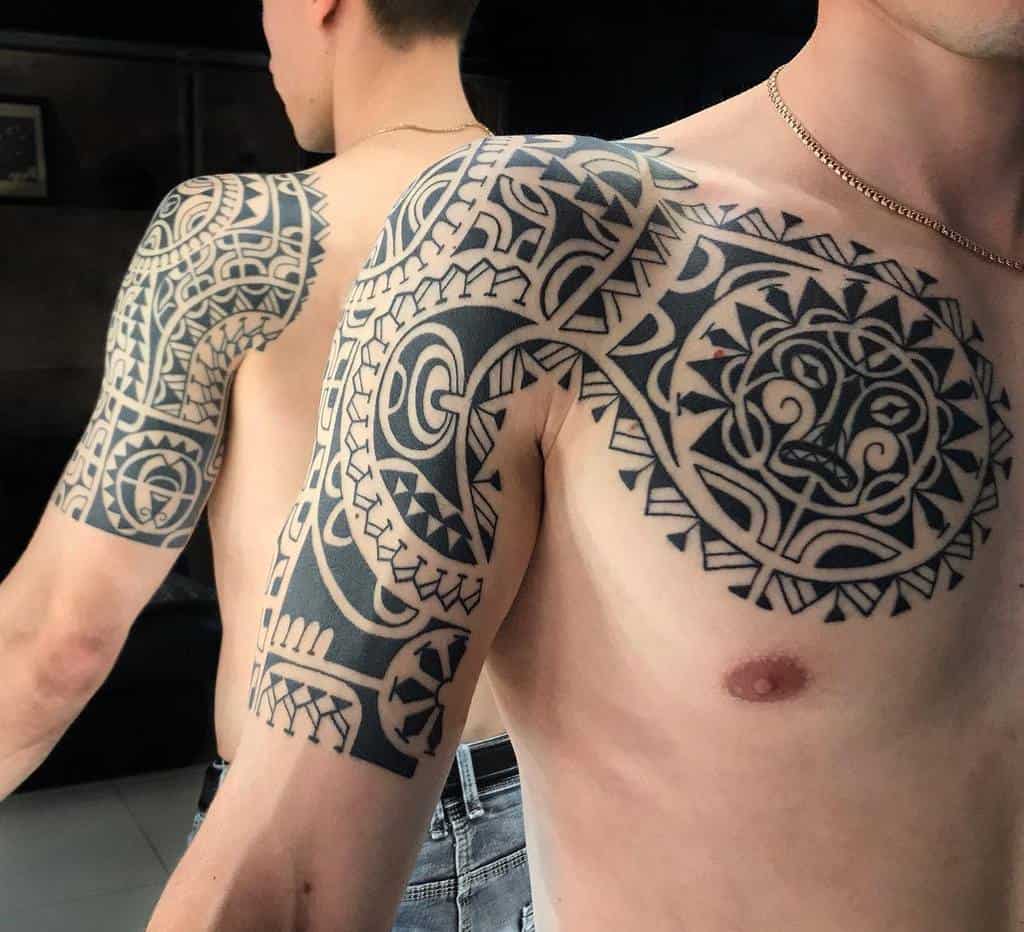
| Tattoo Symbol | Meaning |
|---|---|
| Side of the face tattoos | Connection to traditional Maori art and culture |
| Maori name and symbol incorporation | Blending of traditional and contemporary elements |
| Tane Mahuta-inspired designs | Connection to nature, growth, and spiritual strength |
| Tiki tattoos | New beginnings, self-discovery, and personal transformation |
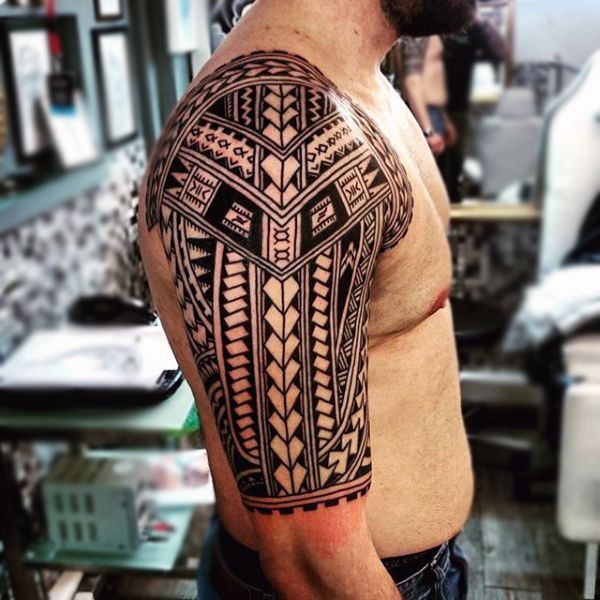
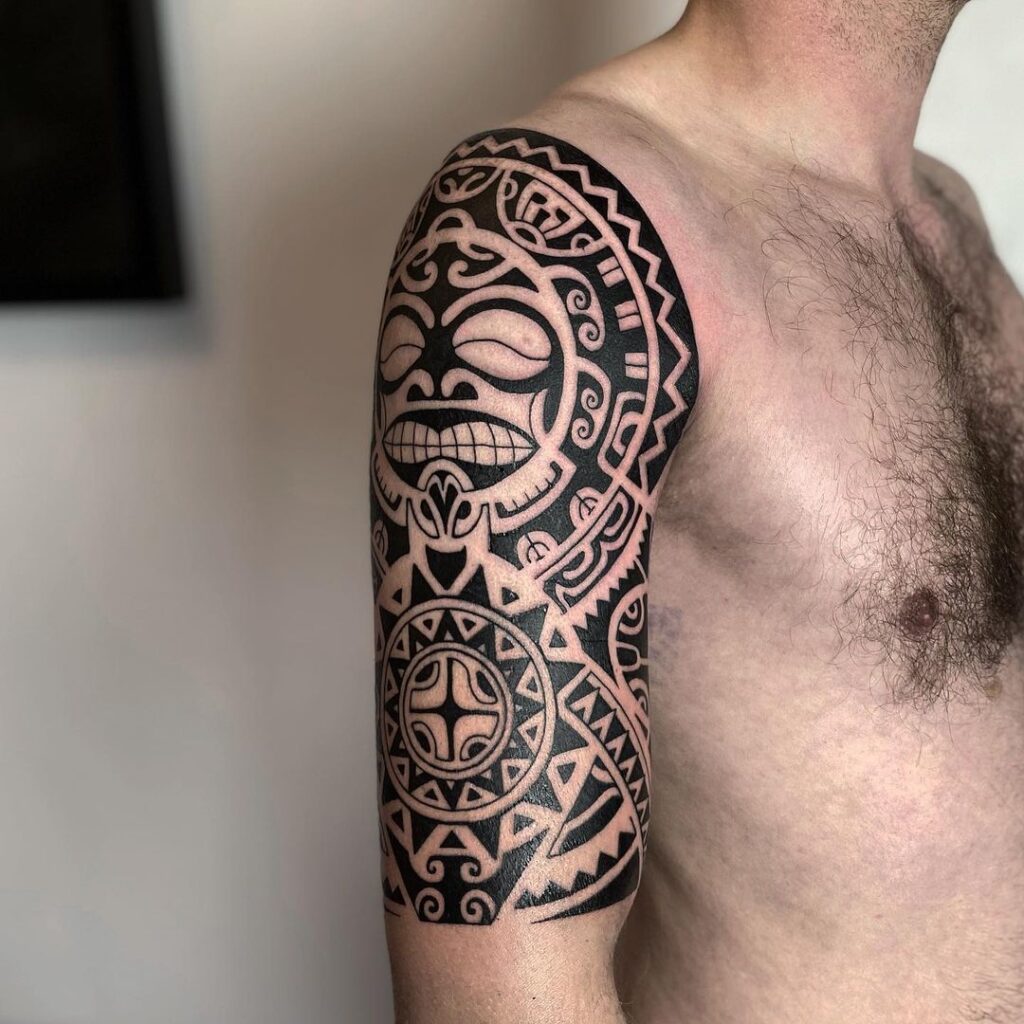
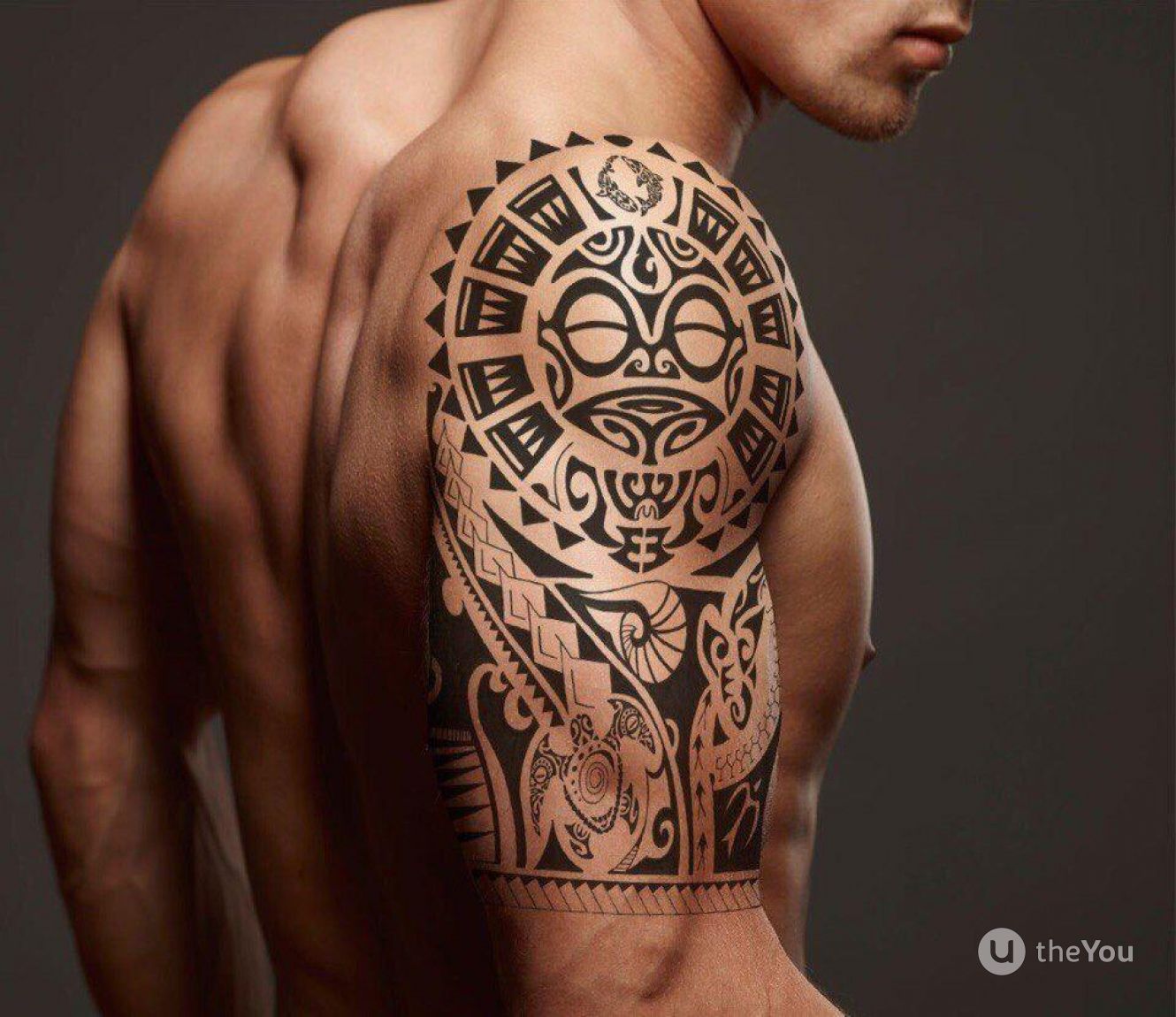
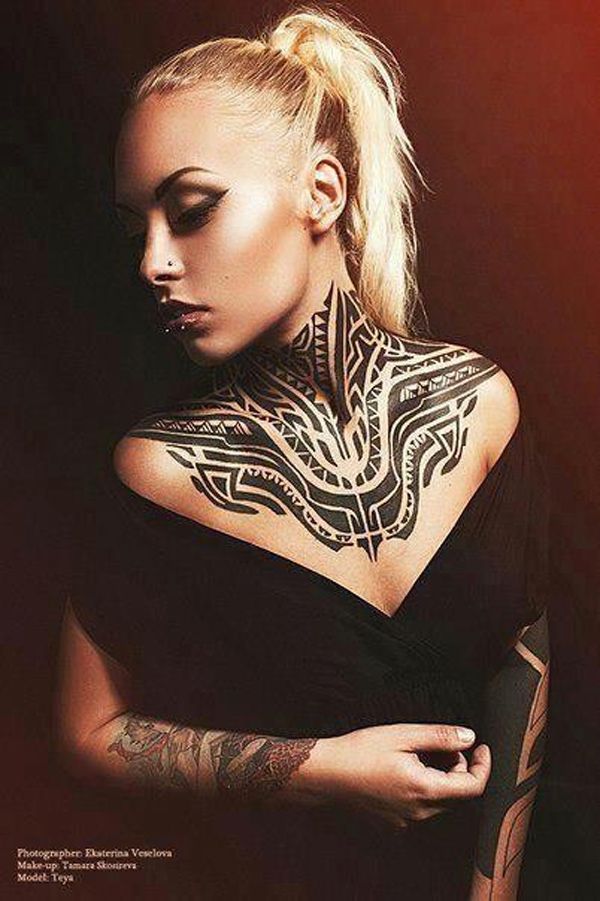
Conclusion
Maori tattoos, or moko, are a testament to the rich cultural heritage of the Maori people in New Zealand. These tattoos carry deep symbolic meanings, reflect ancestral history, and serve as a physical manifestation of cultural identity.
From the traditional art of ta moko to the contemporary expressions of Maori tattooing, the beauty and significance of these tattoos have captivated people around the world. By embracing Maori tattoos, individuals can pay homage to the Maori culture and its enduring legacy.
The intricate designs and meanings behind Maori tattoos showcase the depth of Maori spirituality and their connection to nature and whakapapa (ancestry). Each tattoo is a unique and personal story, told through the intricate patterns and symbols that represent the wearer’s social status, lineage, and important aspects of Maori culture and mythology.
Today, Maori tattoos continue to be a source of cultural identity and expression in contemporary New Zealand. While full facial tattoos are less common, the incorporation of Maori names and symbols into modern tattoo designs represents the blending of traditional and modern elements.
Maori tattoo art has transcended cultural boundaries and is embraced by individuals from diverse backgrounds who appreciate the beauty, cultural significance, and unity that these tattoos represent.
Whether you are of Maori descent or simply appreciate the rich cultural heritage of the Maori people, choosing a Maori tattoo can be a powerful way to honor and connect with the Maori culture.
By adorning your body with these meaningful tattoos, you become a part of the living legacy that is Maori tattooing, preserving and celebrating the traditional art of ta moko for generations to come.